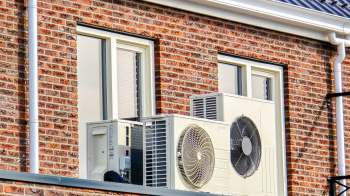A massive oil spill in Colorado could take up to five years to clean up, and families are still displaced months after Chevron's oil and gas leak led to the evacuation of homes and an elementary school, according to Colorado Public Radio and CBS News.
What's happening?
In April, a Chevron facility near Galeton experienced a "blowout," as CPR reported, discharging a mix of water, chemicals, and crude oil for almost four days straight.
The state's Energy and Carbon Management Commission classified the spill as the largest since 2015 — and it may be the largest in Colorado's history, whether "measured by barrels of oil, or of produced water, spilled, or recovered."
"We have not seen an incident like this in Colorado history, as far as I can tell," said Aaron Weiss, deputy director of the conservation and advocacy group Center for Western Priorities.
By May, Chevron had recovered 91,272 barrels of waste fluid. However, more than a dozen families couldn't return to their homes, and cleanup efforts continued at an elementary school. By mid-June, four of the 14 families still weren't back in their dwellings, per CBS News.
Why is this important?
Oil and gas spills aren't only disruptive for communities; they are also a public health and environmental menace. According to the National Oceanic and Atmospheric Administration, oil contains a variety of toxic compounds associated with severe health complications, including immune system issues, heart damage, stunted growth, and death.
TCD Picks » Upway Spotlight
💡Upway makes it easy to find discounts of up to 60% on premium e-bike brands
Weiss told CPR that the Galeton oil spill — which Chevron said occurred when a contract worker failed to properly install equipment, also resulting in injury, per CBS News — underscored the risks of oil and gas operations. Our World in Data found that oil, gas, and coal are the top three deadliest forms of energy in terms of accidents and air pollution.
These are among the reasons why governments are investing in clean or low-carbon energy. Not only are solar, nuclear, wind, and hydropower the four safest types of energy by those same two metrics, but they can also boost energy security while stabilizing the cost of electricity.
What is Chevron doing about the oil spill?
Chevron says it is committed to cleaning up the oil spill and will rely on a pair of general liability insurance policies to help shoulder the costs, as CPR reported.
"If there's a silver lining here, it's that Chevron has the resources to eventually clean all this up," Weiss said. "But of course, it's up to state regulators, ECMC, and the Colorado Department of Public Health to make sure that happens."
|
Do you worry about air pollution in and around your home? Click your choice to see results and speak your mind. |
Chevron also said that it is covering housing and living expenses for displaced residents and has reviewed assembly and equipment setup procedures to help prevent a similar incident from occurring again. Additionally, it will monitor air quality and partner with agricultural property owners to conduct soil sampling and assess whether it needs to take further action.
Join our free newsletter for good news and useful tips, and don't miss this cool list of easy ways to help yourself while helping the planet.


















